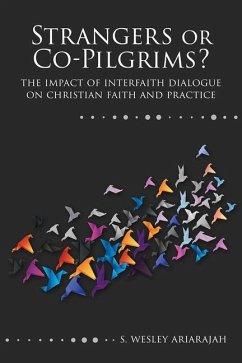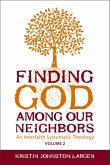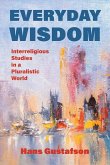This book argues that interfaith dialogue begins with the basic goal of improving Christian relationships with people of other religious traditions. But gradually we become aware that this new ministry, when taken seriously, presents many new challenges, forcing us to reexamine our approach to religious plurality and our theology of religions. It also raises questions on how we read the Bible, understand Christian mission, and do theological reflections in a multifaith context. As the title of the volume suggests, the emergence and growth of interfaith dialogue has been looked upon by some as a threat to the future of Christianity and its mission in the world. Others consider dialogue a phenomenon that will give new vitality and relevance to Christianity in a religiously plural world.
Hinweis: Dieser Artikel kann nur an eine deutsche Lieferadresse ausgeliefert werden.
Hinweis: Dieser Artikel kann nur an eine deutsche Lieferadresse ausgeliefert werden.









